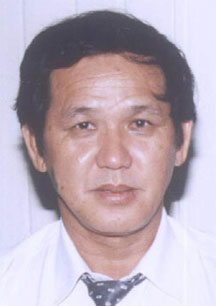Acting Chief Justice Ian Chang is set to rule on government’s application for the restoration of funds cut from the national budget by the parliamentary opposition, after lawyers for both sides concluded their arguments yesterday.
At an hour-long, in-chambers hearing yesterday, there were submissions by Senior Counsel Rex McKay as well as attorneys Roysdale Forde and Khemraj Ramjattan. Attorney General Anil Nandlall, who is responsible for the application to the court, also briefly replied to submissions made at the hearing.
Chief Justice Chang will set a date when he would give his ruling.

McKay, along with a battery of lawyers, is on record for APNU Leader David Granger, while Forde and Ramjattan are appearing for House Speaker Raphael Trotman. Granger and Trotman and Finance Minister Dr Ashni Singh are the respondents in the case, in which government contends that the National Assembly had no power to alter the budgeted expenditure proposed by the government.
The government through Nandlall filed the ex-parte motion, asking the court to grant an order vacating and/or setting aside the budget reduction as well as an interim order to allow Finance Minister Singh to make advances from the Consolidated Fund to restore the original allocations for the agencies affected by the cuts.
McKay told reporters yesterday that his submission centred on the argument that there was no breach of the principle of separation of powers and that the court should make the order in accordance with Act No. 3 of 2012, the Appropriation Act. The Senior Counsel explained that the Act sets out “all the reliefs which they were are asking for and all the reductions which were made.”
Asked whether the previous ruling by the court in the committee of selection case—which also dealt with the separation of powers of the National Assembly and the executive—had any impact on the present case, McKay said “not at all, none whatsoever.”
Meanwhile, Nandlall, who filed the motion on the government’s behalf to have the court restore $20B cut from the budget by the opposition before it was passed was confident of his arguments.
“I am confident, having heard McKay and having read the submissions which were submitted, I remain very confident that the order will be made in my favour,” he said.
He told reporters outside the courtroom that Mc Kay (yesterday) laid over his submissions in writing and he (Nandlall) briefly replied to them.
Asked about the absence of Trinidad-based Senior Counsel Seenath Jairam, who government has retained for the case, Nandlall stated that the attorney has returned to his homeland. “I think his work is finished now,” he said. Jairam had made his submission during a hearing last Tuesday.
The affidavit in support of Nandlall’s application was sworn to by Cabinet Secretary and Head of the Presidential Secretariat Dr Roger Luncheon and averred that no power resides in the National Assembly, either in the Committee of Supply, or at all, to move an amendment to reduce any aspect of the Annual Estimates of Revenues and Expenditure laid by the Minister of Finance.
As a result, Luncheon contended that the two motions moved by MPs Khemraj Ramjattan and Carl Greenidge to effect the budget cuts “amounted not only to an arrogation of powers which the Constitution does not confer upon them, but was also a usurpation of a function which the Constitution exclusively resides in the Executive, thereby, abrogating the doctrine of separation of powers.”
Luncheon has argued that the Constitution contemplates that Parliament’s two components, the President, as the supreme executive authority and head of the executive, and the National Assembly, will function constructively and in harmony with each other.
The agencies identified in the application as being affected by the budget cuts are Office of the President, including Cabinet, Advisers to Cabinet, the Defence Board, Presidential Advisers, the Government Information Agency, the National Communications Network; Office of the Prime Minister, and specifically the Guyana Power and Light; the Ministry of Finance, and in particular the Ethnic Relations Commission, the State Planning Secretariat, and the Low Carbon Development Strategy; and the Guyana Elections Commission. It was also noted that hundreds of persons who are directly employed by affected offices and agencies are now, without any fault of theirs or their employers, rendered jobless, colliding with their legitimate expectation of gainful continued employment.
Luncheon has said that none of the offices and entities is new and no power is vested in the National Assembly by the Constitution to affect funding to existing offices, save and except, a power of complete disapproval as contemplated by Article 218. “Unless the Orders sought herein are granted, the offices and entities affected would be unable to, or severely and irreversibly prevented from, discharging their functions in the manner provided for and contemplated by the Constitution, and/or legislation, resulting not only in constitutional chaos, but the Executive’s inability to govern and administer the affairs of this nation in accordance with the provisions of and the manner contemplated by the Constitution,” he said in the affidavit.





